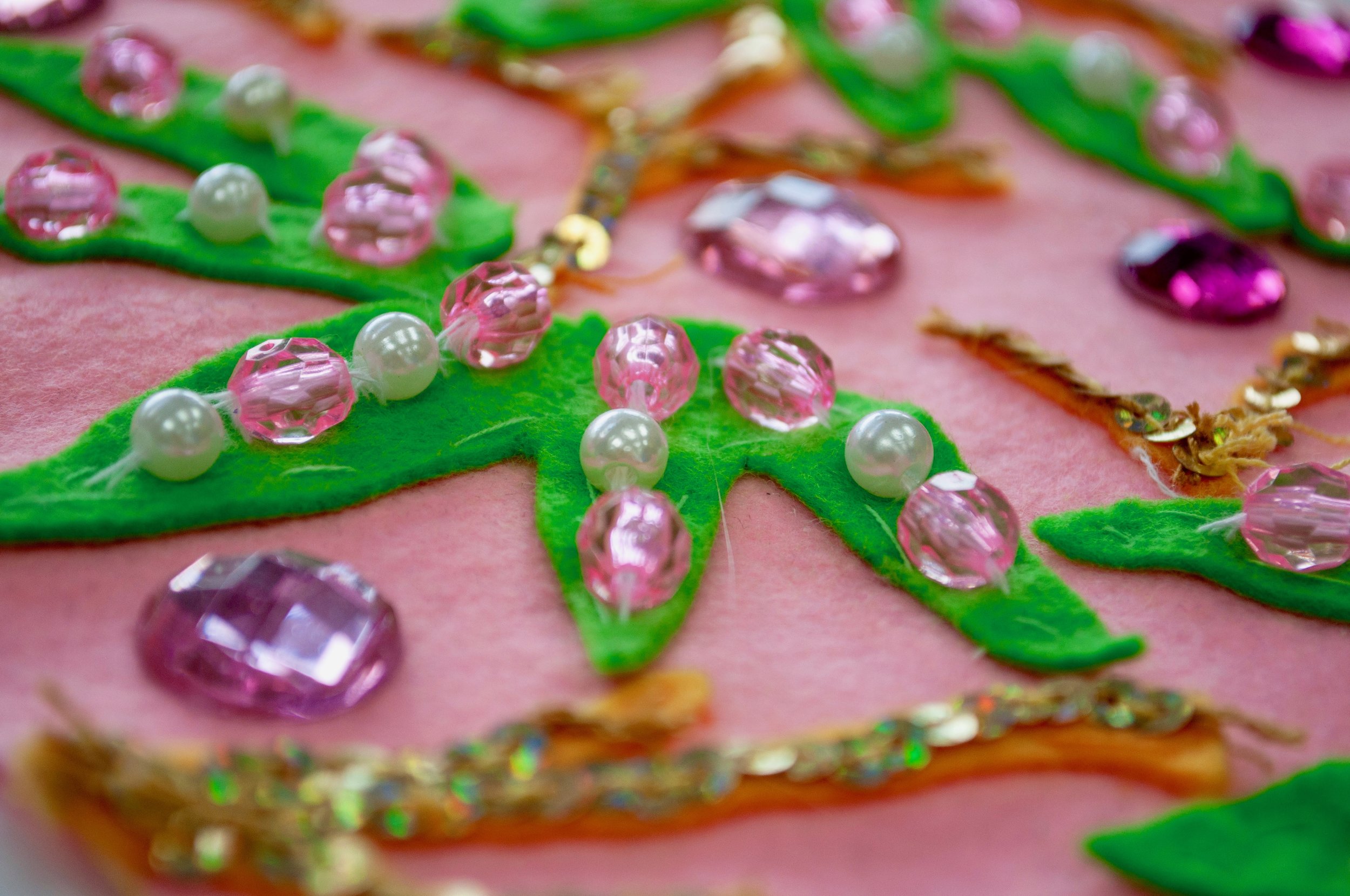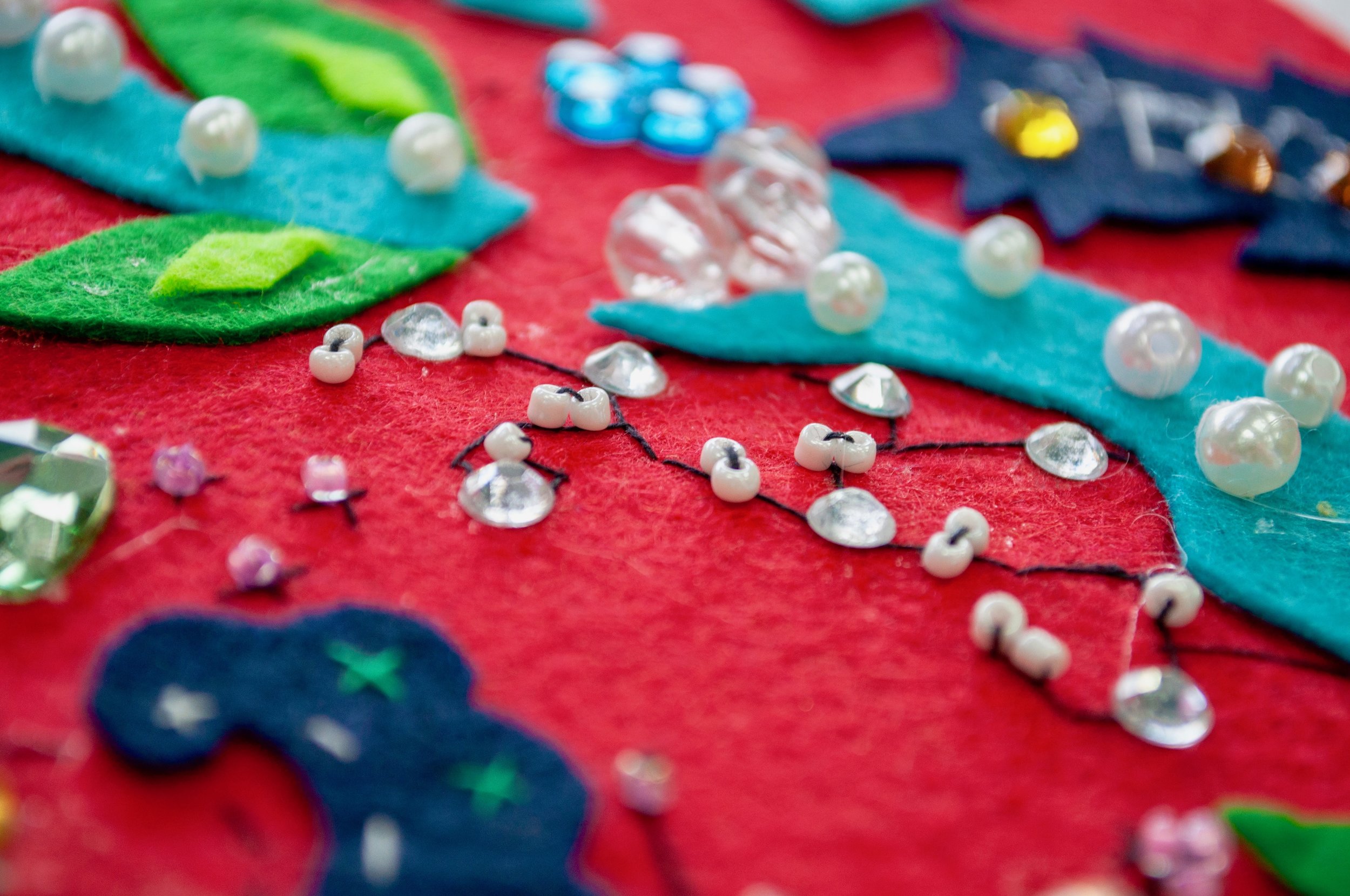1 February 2019
As we welcome the Lunar New Year and the arrival of spring, I couldn’t think of a better project to showcase than my Grade 9s’ and 10s’ Arts & Crafts-inspired decorative textile eggs. It was for many of my students a new experience sewing or working with textiles, one that proved to be both absorbing and rewarding. Over several weeks of design development and execution, they produced a series of colourful hand stitched designs celebrating flora, fauna, pattern, colour, and a stream of history in decorative arts.
Looking at the use of line, pattern, colour, balance and variety in William Morris designs, Grade 9 and 10 students transcribed an existing design or created an original design for a textile egg. Using their mockup as a guide, they cut and hand stitched pieces of felt together to form the basis of their images. They then added detail and finishing touches by applying a variety of embellishments, including sequins, beads, buttons, and diamantes.
It is worth noting that my kids brought a high level dedication to this project. Creating artwork of high production value is always a challenge in a classroom setting, where allotted class time often makes only a dent in the time necessary to fully resolve an artwork to a high standard. I pressed my students throughout the project to give more of their time to their pieces in order to finish them off well, and most of them obliged, giving up several breaks and lunchtimes to continue working on their pieces.
For some students who struggled with more traditional mediums such as drawing and painting earlier in the year, this project was a turning point and a ‘way in’ to the subject. I was delighted to see once-struggling students come into their own during this project, to pour themselves into their artwork, and to blossom in confidence in a subject they had previously found challenging.
Part Morris, part Fabergé, and something I have approached in my own work
Early myth makers viewed the egg and the sun as progenitors of all life, with the sun embodied by the round, yellow yolk. They assigned to the egg connotations of birth, new life, and fertility, which served as the basis for centuries of Pagan, and later Christian, festivals celebrating the arrival of spring.





































